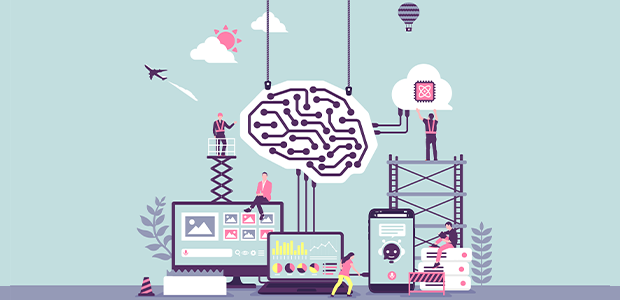
85% of global innovators using GenAI for research and learning
A recent study by innovation scaleup Wazoku, in collaboration with researchers from King’s Business School, has highlighted the growing role of Generative AI (GenAI) and Large Language Models (LLMs) in global innovation efforts. The report, titled "Usage of AI Tools in Crowdsourcing Challenges", sheds light on how these tools are transforming the way people approach problem-solving.
According to the research, nearly half (46%) of the Wazoku Crowd – an extensive network of 700,000 individuals – had utilised GenAI over the past year to work on innovative solutions. This group includes professionals such as scientists, pharmacists, engineers, PhD students, CEOs, and startup leaders, all contributing to a range of business ‘challenges’, or requests for creative solutions.
One significant finding is that 22% of respondents use tools like ChatGPT and Anthropic Claude for at least half of their idea submissions, with 8% relying on them for every submission. Among those using GenAI, 47% employed it specifically to generate new ideas.
Wazoku’s crowdsourcing model boasts a success rate exceeding 80%, demonstrating the effectiveness of combining human creativity with AI to tackle complex business problems.
"There's an incredible amount of hype with GenAI, but alongside that there is enormous curiosity," said Simon Hill, CEO, Wazoku. “Getting immersed in something and being curious is an innovator's dream, so there is rich potential with GenAI. A note of caution, though – it is best used to generate interest, not solutions. Human ingenuity and creativity are still best, although using GenAI can undoubtedly make that process more effective."
The most common use of GenAI was in research and learning, with 85% of respondents using it for that. Around one-third of the Wazoku Crowd used GenAI for report structuring, writing, and data analysis and insight.
In partnership with Oguz A. Acar, Professor of Marketing and Innovation at King's Business School, King's College London, Wazoku surveyed members of the Wazoku Crowd to see how they were using AI or LLM tools, what they were using them for, and how it may have impacted their problem-solving ability.
Professor Acar felt that the research was a significant first step toward understanding AI's value and limitations in solving complex innovation challenges:
“Everyone's trying to figure out what AI can and can't do, and this survey is a step forward in understanding that. It reveals that some crowd members view GenAI as a valuable ally, using it to research, create, and communicate more effectively. While perhaps it's no surprise that those open to innovation are curious about new tools, the survey also shows mixed opinions. Most people haven't used GenAI tools yet, highlighting that we're only beginning to uncover AI's potential in innovative problem-solving.”
Wazoku works with customers, including Sanofi, A2A, Bill & Melinda Gates Foundation, and many global enterprise businesses, government departments and not-for-profits, to crowdsource ideas and innovation. Wazoku’s Innovation Ecosystem Platform supports their Total Innovation approach to Market Intelligence & Scouting, Innovation Management and Start-up & Partner Ecosystem Management, enabling organisations to crowdsource, capture, and manage ideas, whether from their own networks (such as employees, customers, partners) or via the Wazoku Crowd.
The company recently launched its own conversational AI to aid innovation. Jen AI is a digital innovation assistant with access to Wazoku’s connected innovation management suite, which accelerates decision-making around innovation and enhances productivity to deliver consistent, scalable results.
"The solutions to the world's problems are complex, and the support of AI brings vast benefits in terms of efficiency, creativity, and insight generation,” continued Simon Hill. “Gen AI helps simply this complexity even further and is seen by users as an increasingly vital tool for connection innovative thinking.”

